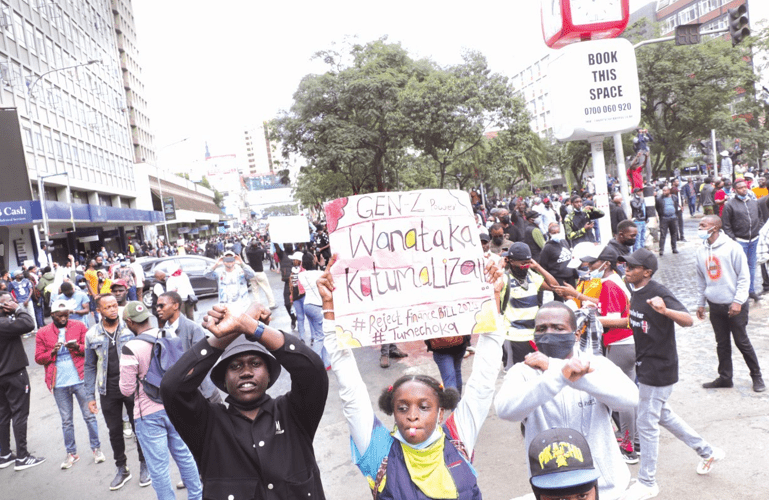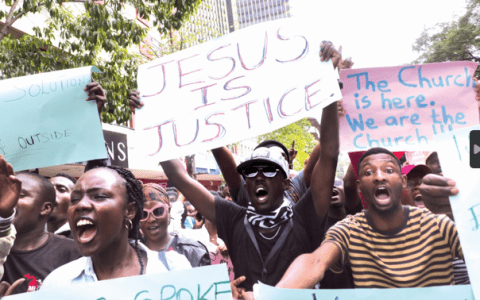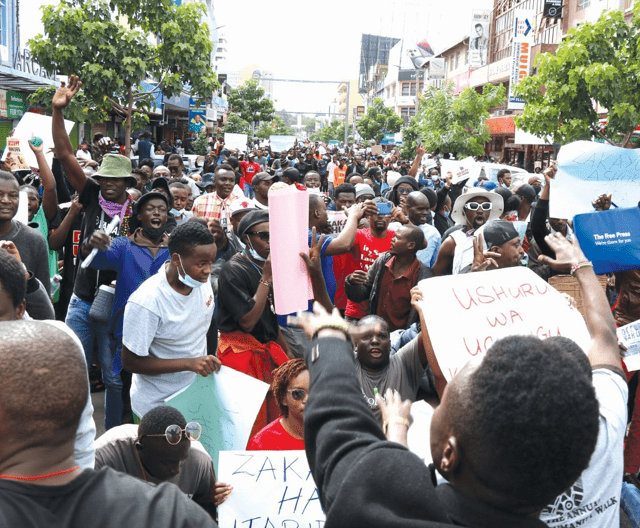With little to lose, Gen Z dig in for pre-2027 rout

On June 25, 2024, we had our own version of ‘Bloody Tuesday’ when ‘Occupy Parliament’ protesters stormed the House. Reports that some pro-government MPs mobilised goons to attack anti-tax protesters echo the barbaric actions of a pro-racial segregation mob of white citizens who angrily descended on their anti-racial segregation colleagues in America’s ‘Bloody Tuesday’ on June 9, 1964.
Four days after our Bloody Tuesday, New Sunbeam Shopping Complex on Nairobi’s Mfangano Street is charred, some parts still smoldering after criminal elements who infiltrated the ‘Occupy Parliament’ protests by Gen Zs and millennials set it on fire.
The arsonists were on a mission to steal from the stores, most serving as food outlets and others dealing in mobile telephones and accessories. According to eyewitness accounts, business owners managed to repulse the looters for some time. But the pillagers regrouped and their numbers increased, taking advantage of skewed deployment of police officers to undermine the noble cause for which young people had taken to the streets across the country to reject the 2024 Finance Bill.
It was clear from the outset that potential plunders would be left to their own devices after Interior minister Kithure Kindiki addressed the public on the eve of the protests. He left no doubt that after the weeklong protests that had clearly taken their toll on demoralised and outnumbered police officers the State would prioritise its own self-preservation and not bother about the rights and fundamental freedoms of the general public, including the security of citizens and their property.
Some of Kenya’s contingent of 1,000 police officers being sent to Haiti left a day before ‘Bloody Tuesday’, when none other than President William Ruto saw off the first group of 400 officers. They are to join a multinational force whose mission is to combat gang violence in the strife-torn Caribbean nation.
In their opposition to the deployment of Kenyan officers to Haiti, citizens cited their poor training in crowd management, appalling human rights record, and a voracious appetite for bribes.
The Constitution decrees a rights-based approach to governance, guaranteeing the right to demonstrate, picket and petition authorities, peaceably and unarmed. The supreme law also provides for national values and principles of governance that prescribe the injunctions and parameters within which elected and appointed leaders should manage public affairs.
It also proclaims good governance, integrity, transparency and accountability as mandatory whenever any State organ, State officers, public officers and indeed any other individual and legal persons apply or interpret the Constitution; enacts, applies or interprets any law; or makes or implements public policy decisions.
But the powers that be increasingly display disdainful disposition to popular opinion and sentiment, making them not count in the country’s public policy formulation and implementation. The situation has deteriorated more recently, especially after President Ruto became the blue-eyed boy of the country’s traditional allies in capitals in the West where he’s garlanded with scented flowers every time he visits.
Little wonder that even as Kenyans raised concerns about overtaxation in the 2024 Finance Bill, President Ruto at one point quipped on national television as he addressed visiting students from Harvard Business School that Kenyans should stop whining about the 16 percent VAT on bread because “it will be 22 percent by the time I finish my first term in 2027”.
Little wonder Gen Zs and millennials see nothing more to lose, making true their threat to storm Parliament that day, with police fatally shooting 23 of them and leaving over 300 nursing bullet wounds. They now want callous and cold-hearted leaders insensitive to their plight to vacate before 2027.
The writer is the Executive Director of the Kenya National Civil Society Centre


